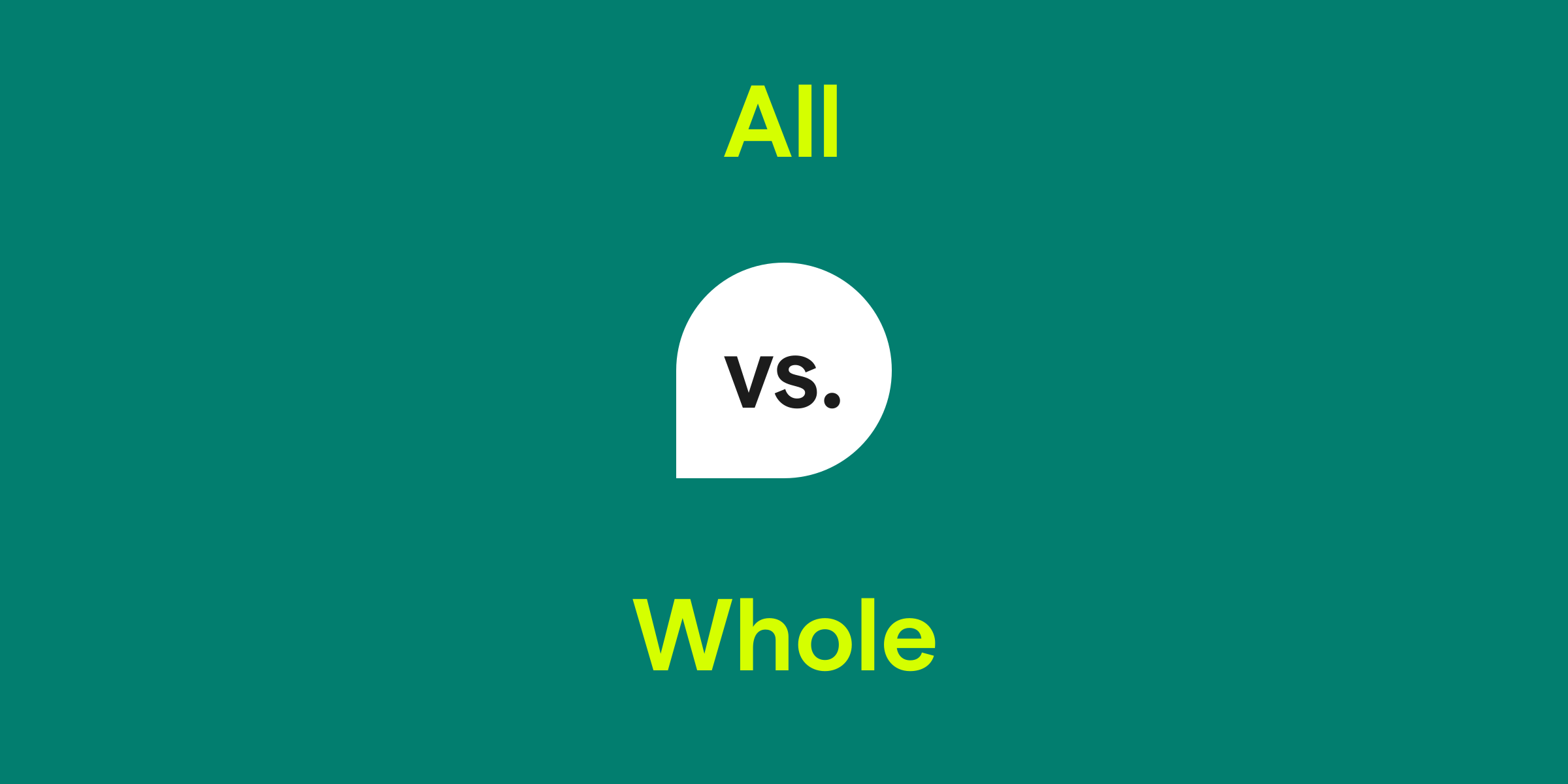All vs. Whole: What's the Difference?
Understanding the difference between all and whole can refine your language precision. All is used to refer to the entirety of a quantity or a group of things or people, often conveying the idea of a collective or a sum of parts. Whole denotes a single entity in its completeness, typically emphasizing the undivided nature of something. While they can sometimes be used interchangeably, it's important to be mindful of subtle distinctions in their use.

How do you use the word all in a sentence?
The word all is often used when referring to every member of a group or the complete extent of time or space. It can function as an adjective, pronoun, or adverb, depending on the context. When used as an adjective, it qualifies a noun, and as a pronoun, it can replace a noun phrase. As an adverb, it modifies an adjective or another adverb to signal totality.
Examples of all in a sentence
- She packed all her belongings into the truck for the big move.
- The crowd cheered as the runners entered the stadium, all eager to witness the final lap.
- The stars were visible all night long.
How do you use the word whole in a sentence?
The word whole is primarily used as an adjective conveying totality or completeness. It often precedes nouns to indicate that all parts are present or that something is intact. Whole can also mean the entirety of an amount or extent, signifying undivided attention or effort.
Examples of whole in a sentence
- She spent the whole day reading her favorite book without interruption.
- The whole community came together to support the local food drive.
- It's better to eat a snack with whole grains for sustained energy.
All and whole definition, parts of speech, and pronunciation
All definition:
The term all is used to refer to the whole quantity or extent of a particular group or thing, without exception.
All parts of speech:
All pronunciation:
The word 'all' is phonetically pronounced as /ɔːl/.
Whole definition:
Whole refers to something that is complete or entire, not divided or broken into parts.
Whole parts of speech:
Whole pronunciation:
The term 'whole' is pronounced as /hoʊl/.
The term all is used to refer to the whole quantity or extent of a particular group or thing, without exception.
All parts of speech:
- As an adjective: All the cookies were eaten by the end of the party.
- As a pronoun: All of us agreed to the terms.
All pronunciation:
The word 'all' is phonetically pronounced as /ɔːl/.
Whole definition:
Whole refers to something that is complete or entire, not divided or broken into parts.
Whole parts of speech:
- As an adjective: The whole audience applauded loudly.
- As a noun (less common): He ate the pizza in one whole.
Whole pronunciation:
The term 'whole' is pronounced as /hoʊl/.
All vs. whole in a nutshell
The key to using all and whole correctly lies in understanding their nuances. All is suitable when referring to every part or member of a group without exception, whereas whole is ideal for emphasizing that something is intact and undivided. While all encompasses parts coming together to form a collective, whole applies to a single entity viewed as a complete unit. Remembering this distinction will ensure precise and effective expression in your writing and speech.
Get AI Writing Assistance Wherever You Type
Make sure your vocabulary is on point and every punctuation mark is in the right place, no matter where you’re working. Grammarly works across more than 1 million websites and apps so you can improve your writing without copying, pasting, or breaking focus.

More Commonly Confused Words
Interest piqued? Pore (not pour) over other commonly confused words to help your writing reach peak (not peek) performance.